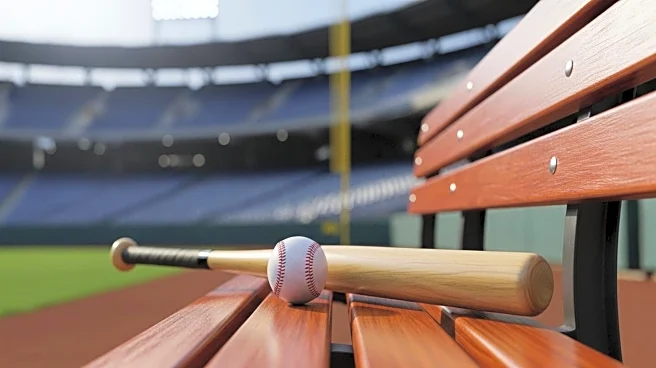What's Happening?
The Milwaukee Brewers faced a narrow defeat in Game 1 of the National League Championship Series against the Los Angeles Dodgers, losing 2-1. A pivotal moment occurred in the bottom of the ninth inning when Brewers' second baseman Brice Turang dodged a breaking ball from Dodgers pitcher Blake Treinen. Had the pitch hit Turang, it would have tied the game, as the bases were loaded. Turang later struck out, ending the Brewers' chance to equalize. Turang expressed regret over his instinctive move to avoid the pitch, acknowledging the missed opportunity. According to Major League Baseball rules, a batter must attempt to avoid being hit by a pitch to be awarded a base, but Turang's reaction was instinctive rather than calculated.
Why It's Important?
This incident highlights the fine margins in playoff baseball, where instinctive reactions can have significant consequences. Turang's decision not to take the hit reflects the natural human instinct to avoid harm, but it also underscores the importance of strategic thinking in high-pressure situations. The Brewers now face an uphill battle in the series, trailing 1-0 against a formidable Dodgers team. Turang's performance throughout the season has been crucial for the Brewers, and his ability to learn from this experience could be vital for the team's chances in the remaining games. The outcome of this series could impact the Brewers' future strategies and player development.
What's Next?
The Brewers will aim to level the series in Game 2, scheduled for Tuesday night. The team will need to regroup and focus on capitalizing on scoring opportunities to avoid falling further behind in the best-of-seven series. Turang's experience in Game 1 may serve as a learning moment, potentially influencing his approach in future high-stakes situations. The Brewers' management and coaching staff will likely emphasize the importance of strategic decision-making and maintaining composure under pressure as they prepare for the next game.
Beyond the Headlines
Turang's instinctive reaction raises questions about the balance between human instinct and strategic decision-making in sports. It also highlights the psychological aspects of baseball, where split-second decisions can alter the course of a game. This incident may prompt discussions on how players can train to manage instinctive reactions in critical moments, potentially influencing coaching methods and player development strategies.










